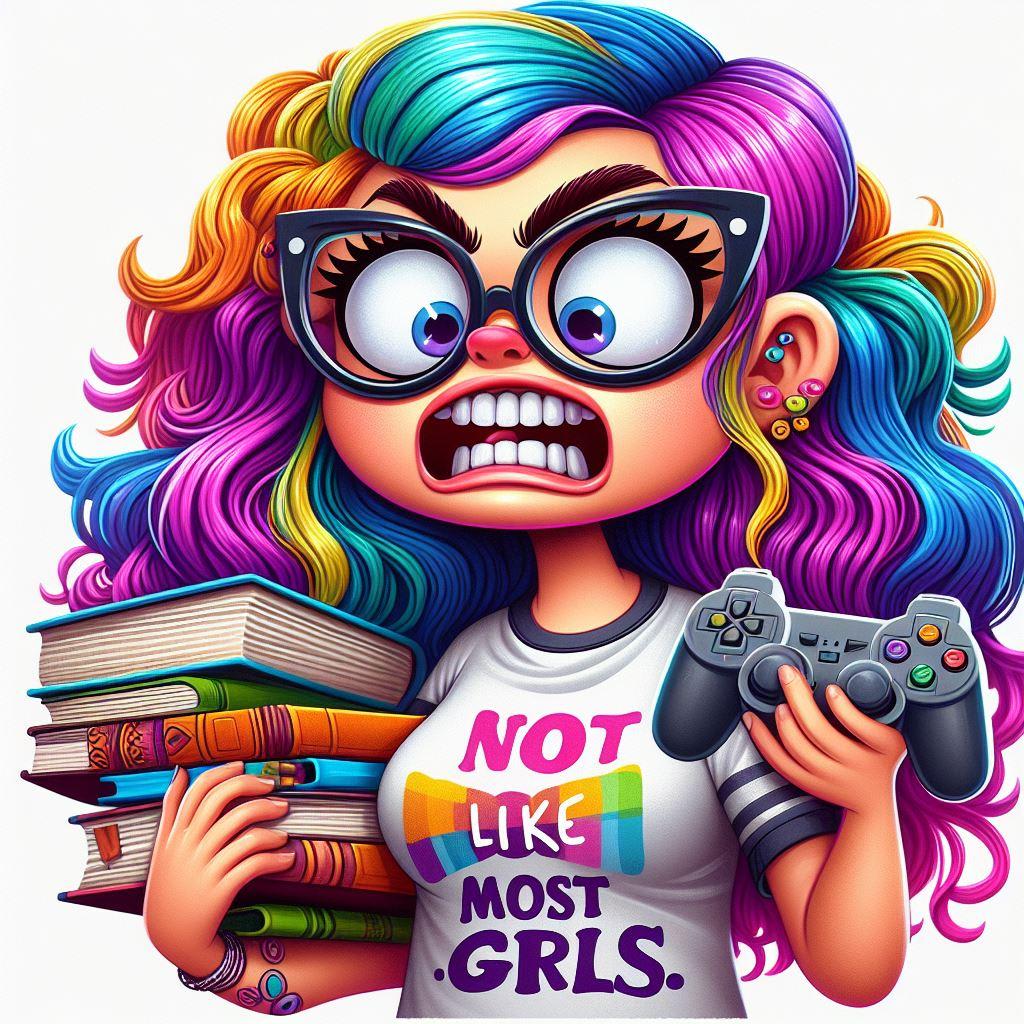A Look Into The “Not Like Other Girls” Phenomenon
The Backhanded Compliment

“You’re not like other girls.” It’s a seemingly innocuous statement, often intended as a compliment. But beneath its surface lies a complex web of implications and stereotypes. Let’s delve into the phenomenon of being “not like other girls” and explore its impact on our perceptions of femininity and individuality.
The Backhanded Compliment
When someone tells you that you’re “not like other girls,” they might think they’re praising your uniqueness. However, this phrase inadvertently puts down other women by implying that they are somehow inferior or boring. It perpetuates age-old stereotypes about women, reinforcing the idea that certain traits associated with femininity are undesirable.
Reinforcing Sexism
By subtly rewarding and supporting masculine traits, the “not like other girls” trope further roots and promotes sexism. It suggests that being different from the stereotypical girl—someone who enjoys makeup, pink, and shopping—is somehow superior. But what does this say about those “other girls”? Are they less worthy or interesting?
Media Influence
This trope isn’t limited to everyday conversations; it’s prevalent in media as well. Films often feature the “cool girl” or the “quirky girl,” both of whom deviate from traditional feminine norms. While it’s refreshing to see individualized personalities on screen, some of these roles inadvertently reinforce sexist stereotypes. For instance, in Disney’s The Princess and the Frog, Naveen’s attempt to propose to Tiana includes the line, “You’re not like the ‘thousands’ of women I’ve gone out with; you’re one of the guys.”
Internalized Misogyny
The girls who proudly declare, “I’m not like other girls,” often pride themselves on their “individuality.” While individuality is not inherently bad, this mindset can harbor internalized misogyny. It pits them against the “other girls,” who are typically portrayed as feminine, positive, concerned about their appearance, and sexually active12.
Challenging the Norm
Hailee Steinfeld’s song “Most Girls” challenges the notion that being different from other women is a prerequisite for being special. In an interview, Steinfeld explained, “I felt that we’ve been accepting the compliment ‘You’re not like most girls’ for a very long time. I have. I feel like there’s been this golden standard or rule that in order to be special, you have to be different from other women” 3.
Celebrating All Girls
Instead of perpetuating stereotypes and inadvertently demeaning other women, let’s celebrate the diversity among girls. Every girl is unique, and that uniqueness doesn’t diminish the worth of others. Whether you love makeup or sports, pink or black, you’re valid. Let’s embrace our individuality without tearing down our fellow women.
Remember, being “like other girls” isn’t an insult—it’s a celebration of shared experiences, resilience, and sisterhood.
About the Creator
Mr. Article
Passionate writer weaving words into captivating stories. With a keen eye for detail and a love for creativity, I bring narratives to life. Let my words ignite your imagination and leave a lasting impact. #Writer #Storyteller #Creativity






Comments
There are no comments for this story
Be the first to respond and start the conversation.